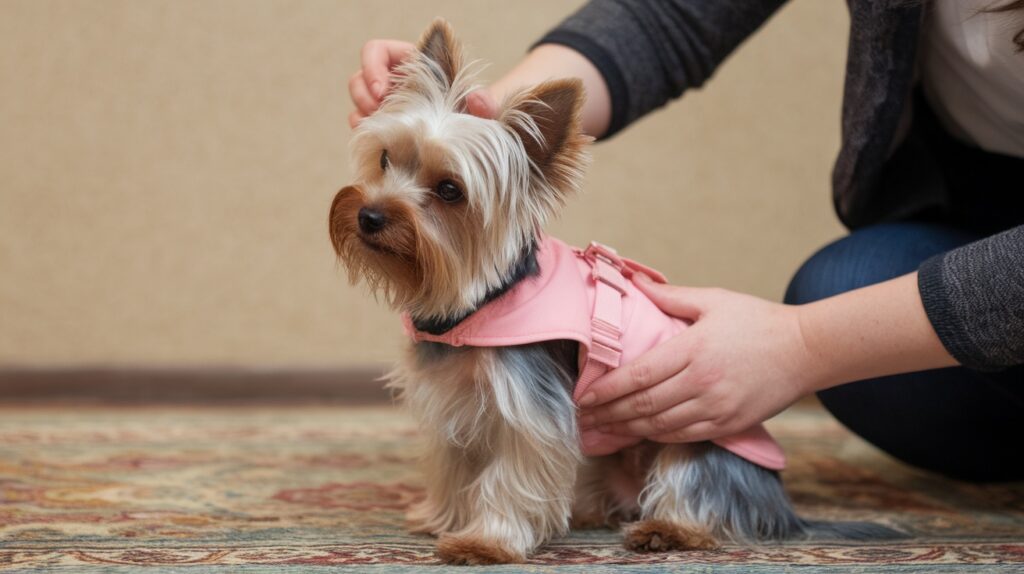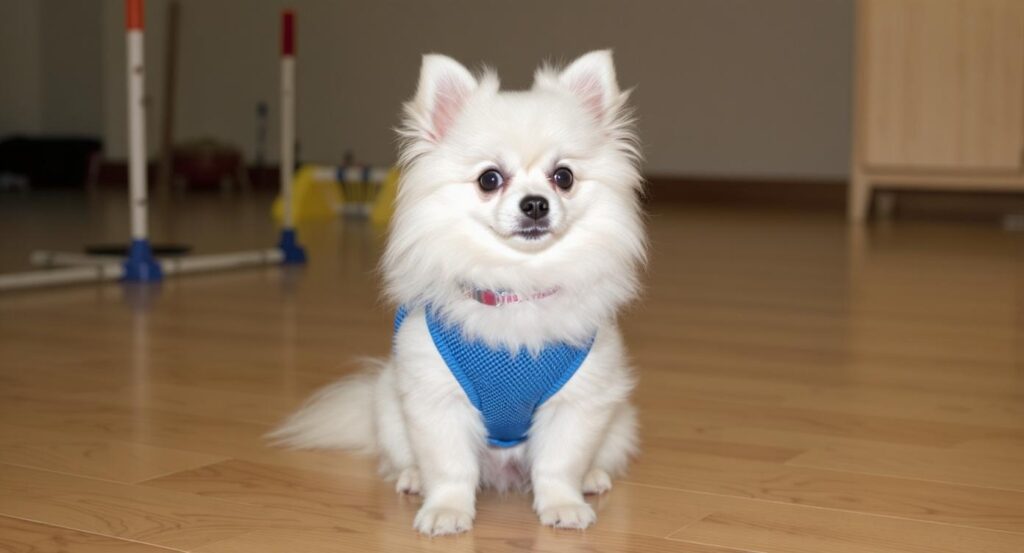Training a Yorkshire Terrier takes patience and a gentle touch. These little dogs are smart and eager to learn, but their sensitive nature means they do best with calm, kind guidance.
Soft handling methods build trust and keep training positive and stress-free.
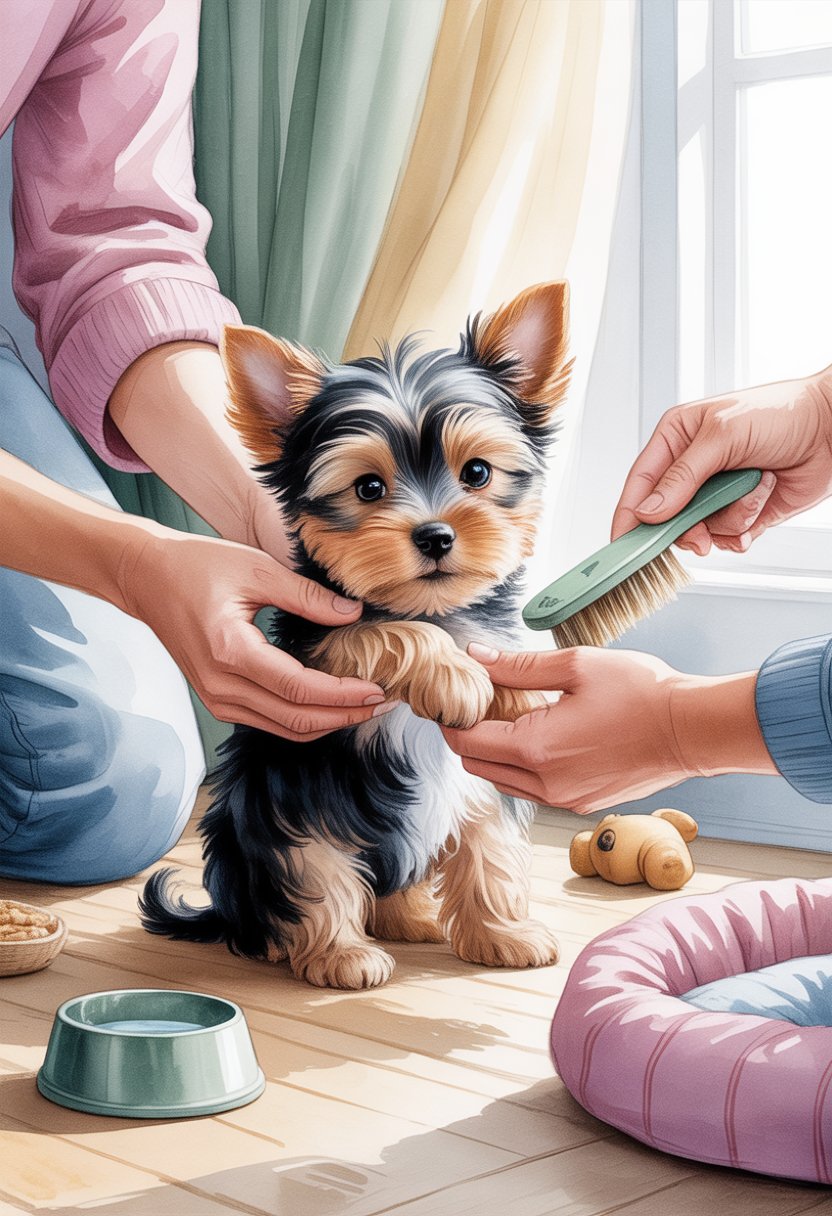
If you focus on comfort, tone, and consistency, you can create a safe learning environment where a Yorkie thrives. This kind of training not only shapes good behavior but also makes the bond between dog and owner much stronger.
Use soft, calm tones when giving commands to avoid startling your Yorkie
Yorkies really do respond best to gentle, steady voices. A calm tone helps them feel safe and more willing to listen.
Loud or sharp commands? Those can make them nervous and less likely to follow directions.
Keep your volume even and avoid sudden changes when giving commands. It helps the Yorkie understand what you want without feeling stressed.
Using a soft voice builds trust over time. The dog learns training is a positive thing, not something to fear.
Matching your words with relaxed body language sends a clear message. A calm presence, plus a soft tone, lets your Yorkie follow with confidence.
Handle your Yorkie gently during training sessions to build trust and comfort.
A Yorkie responds best when you handle them with care. Gentle touches and calm movements help the dog feel safe and relaxed during training.
Rough handling can cause fear and make learning harder. Owners should use a soft voice while giving commands.
A calm tone builds trust and makes the Yorkie more willing to listen. Loud or harsh voices may confuse or scare the puppy.
Short, positive sessions work better than dragging things out. Keeping training light and encouraging helps the Yorkie stay focused.
Gentle praise or a small treat can motivate without pressure. Physical guidance should always be soft.
For example, lightly guiding a Yorkie into a sitting position works better than forcing it. This avoids stress and keeps the dog comfortable.
When a Yorkie feels secure, it learns faster and enjoys the process.
Keep training sessions short and positive to maintain your Yorkie’s interest
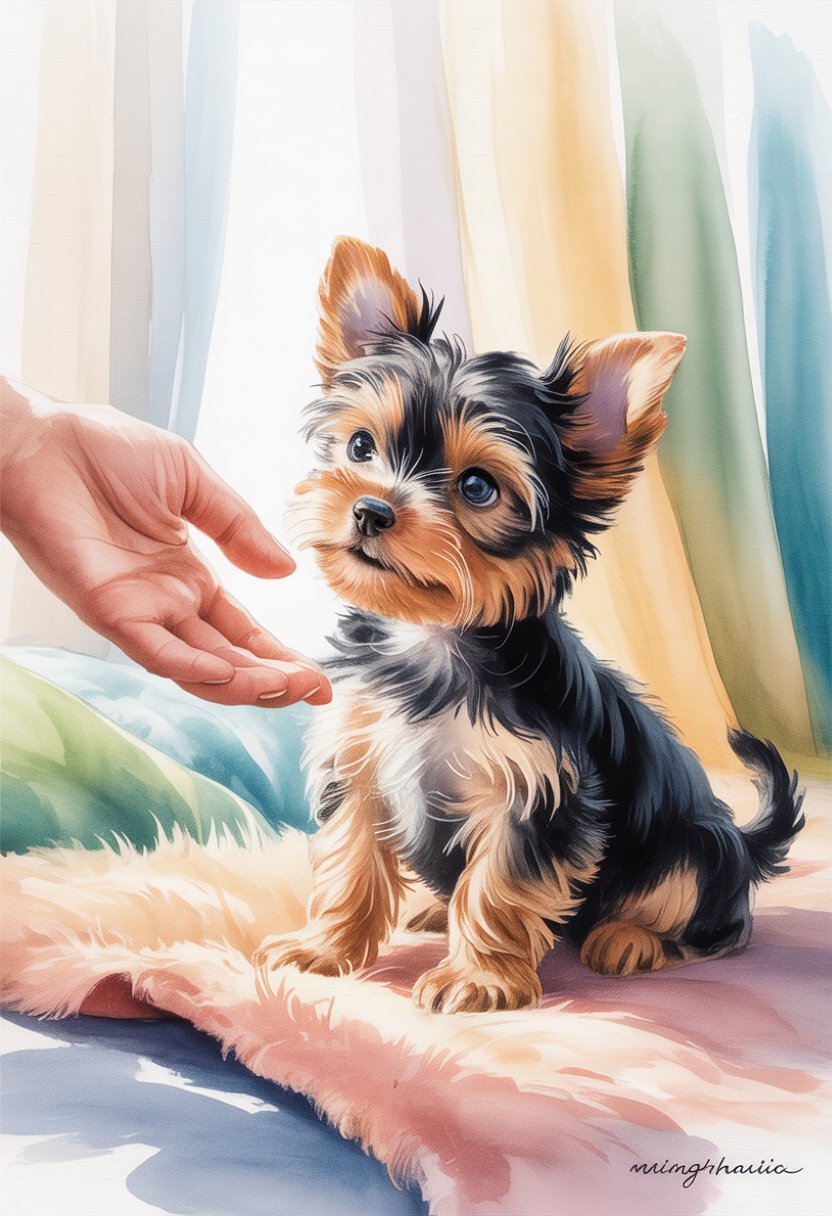
Yorkies have short attention spans, so long lessons just don’t work. Short sessions of 5 to 10 minutes keep them engaged.
When training is brief, the dog stays curious and willing to learn. It also helps prevent frustration for both you and your Yorkie.
Positive reinforcement makes these short sessions much more effective. Rewards like small treats, praise, or a favorite toy encourage your Yorkie to repeat good behavior.
Ending each session on a success keeps the dog motivated for next time. A simple command, then a reward, helps the Yorkie link training with fun.
Frequent, quick lessons sprinkled through the day work better than one long session. This helps the dog remember commands without feeling overwhelmed.
Consistency matters, too. Using the same words and tone helps your Yorkie know what’s expected every time.
Reward good behavior with gentle petting and soft praise instead of loud noises
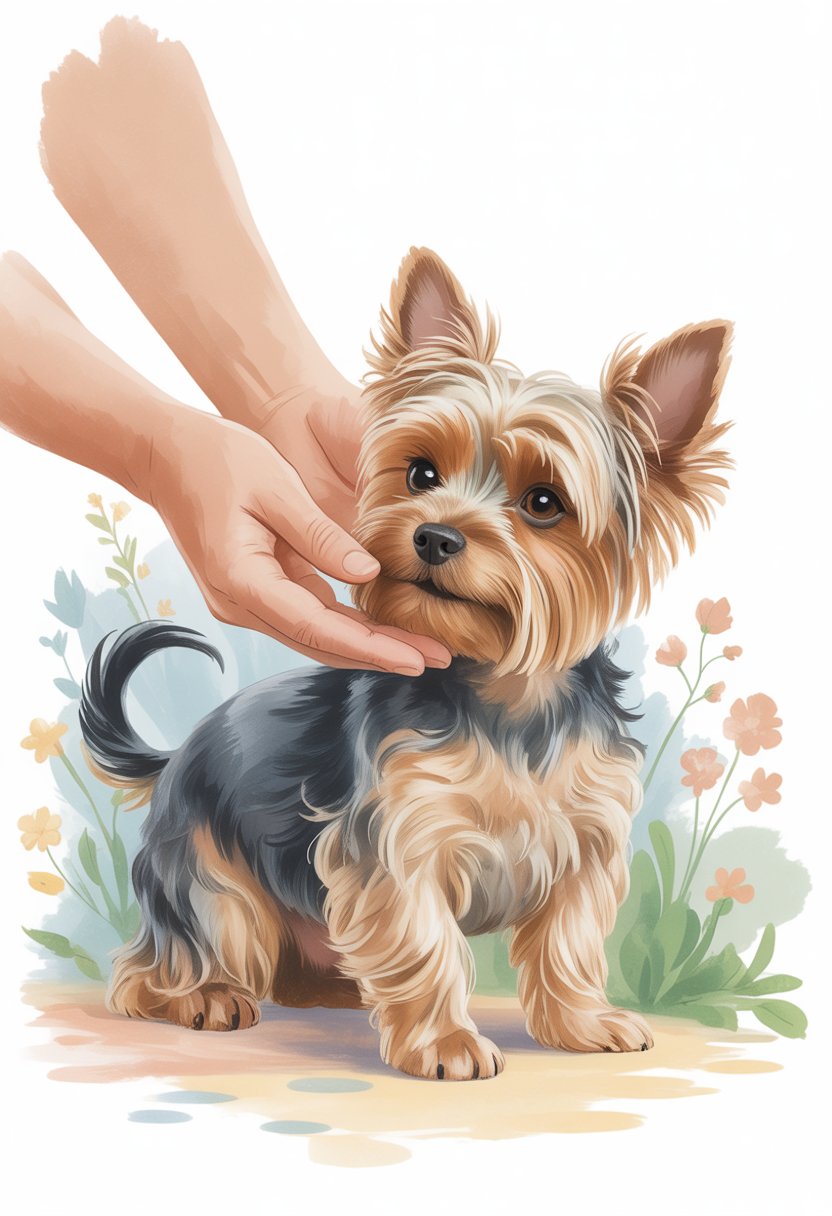
When a Yorkie listens or shows calm behavior, gentle petting reinforces that choice. A soft scratch behind the ears or a calm stroke along the back helps the dog feel secure and appreciated.
Using a warm, quiet voice adds to the reward. Saying “good job” in a calm tone helps the Yorkie connect good behavior with positive attention.
Loud cheering or clapping can startle small dogs and make them anxious. Gentle praise and touch strengthen the bond between you and your Yorkie.
The dog learns that good behavior brings comfort and affection, not stress or confusion.
Avoid harsh corrections; instead, redirect your Yorkie calmly to desired behaviors.
Yorkies can be sensitive, so harsh corrections just make them nervous or confused. Instead of scolding, guide your dog toward better choices with patience and consistency.
If a Yorkie starts barking or nipping, redirecting attention works better than punishment. Offer a toy, ask for a simple command, or move them to a calmer activity to shift their focus.
Positive redirection builds trust. It shows your Yorkie what’s expected without creating fear.
Rewards like praise, treats, or gentle petting reinforce the new behavior. Keeping things light and encouraging makes learning easier for both of you.
Use treats sparingly and pair them with soothing words to reinforce training
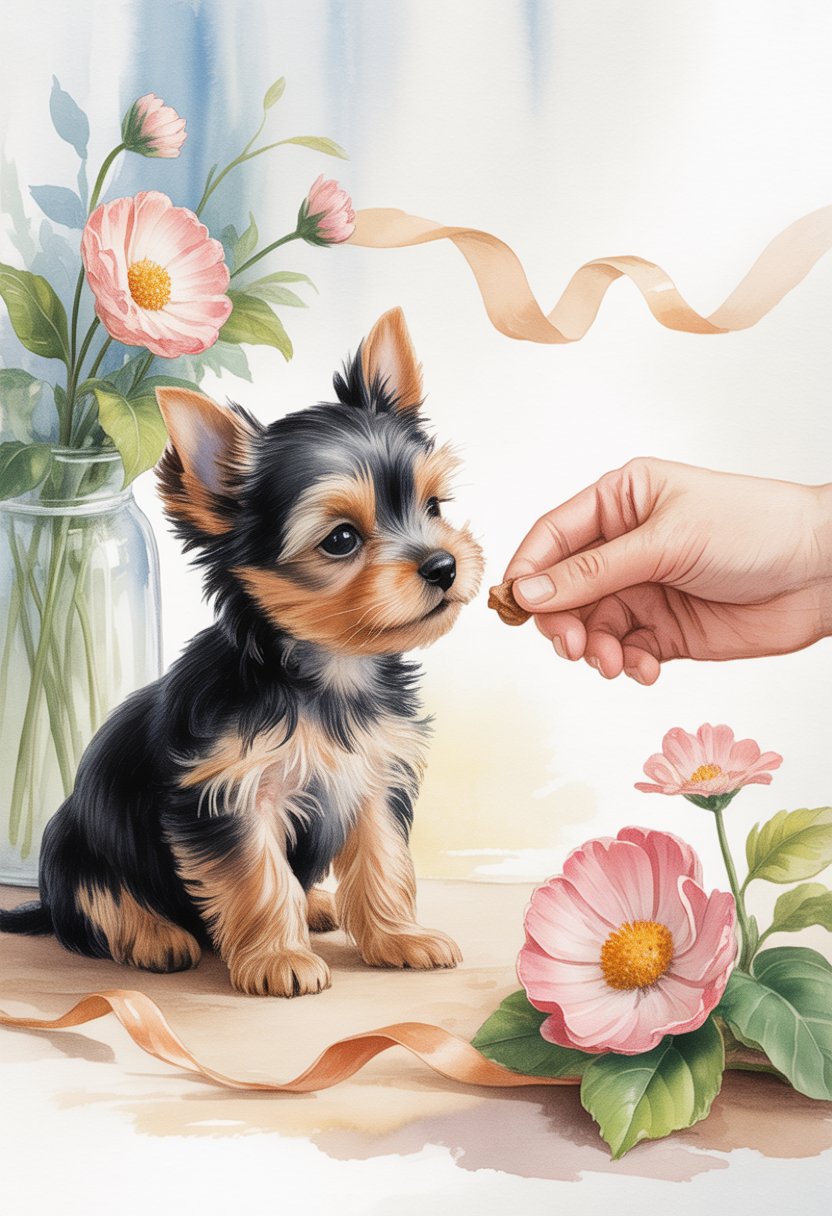
Treats can motivate a Yorkie, but if you use too many, they start expecting food every time. Giving small rewards sparingly keeps your dog focused without making treats the only reason to listen.
Pair treats with calm, gentle words. Over time, your soothing voice becomes just as encouraging as the snack.
Keep treats small and healthy so you don’t upset your Yorkie’s stomach. A quick “good job” or “good girl” in a soft, happy tone can reinforce the action as much as food does.
When you use treats and kind words together, you build trust and consistency. The Yorkie learns that listening brings comfort and reward, not just a snack.
Create a quiet, distraction-free space for training to keep your Yorkie relaxed
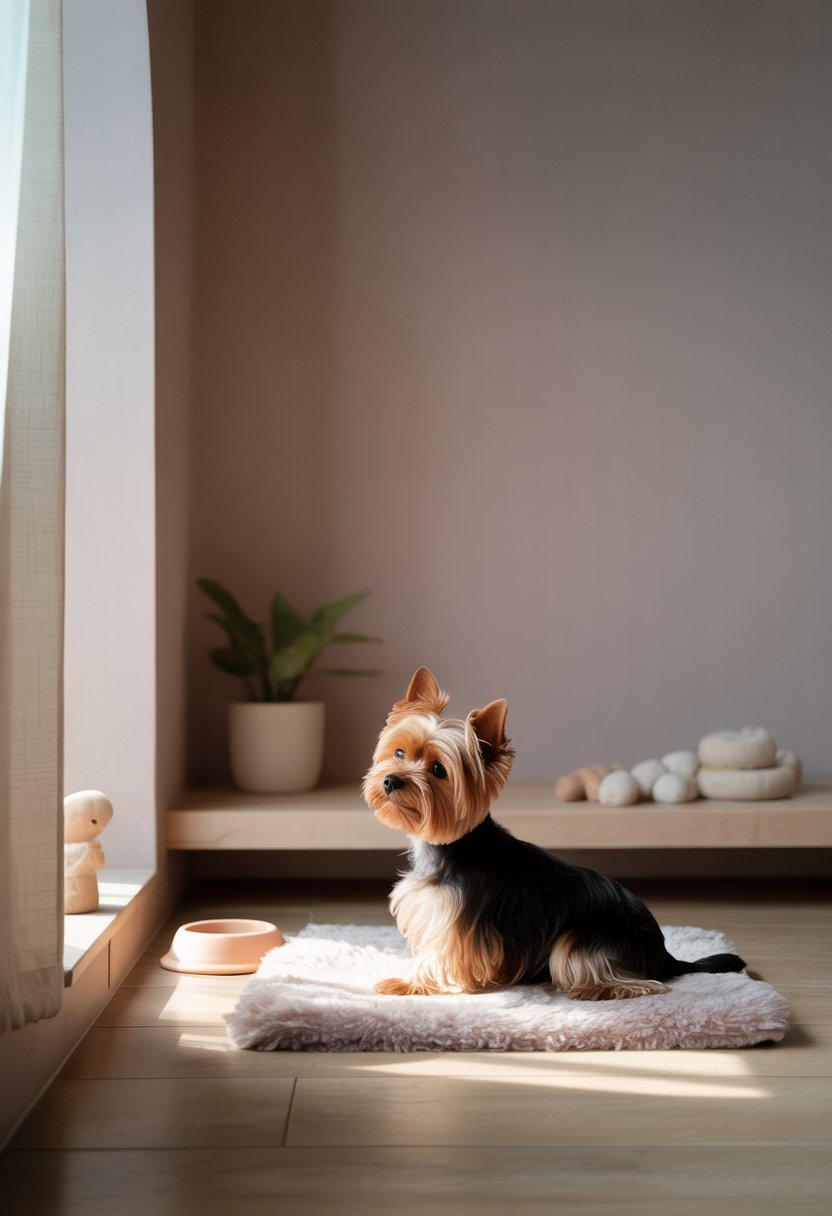
A Yorkie learns best in a calm, simple environment. Loud noises, other pets, or people walking around can make it tough for them to focus.
A quiet space helps your Yorkie feel safe and ready to pay attention. Choosing the right spot really does make a difference.
A small room indoors or a calm corner of the yard works well. The key is keeping the area free from sudden sounds or movement.
Short training sessions in this kind of setting allow your Yorkie to relax. When they’re relaxed, they can process commands more easily and respond in a positive way.
Keep toys, food bowls, or other distractions out of sight. This helps your Yorkie connect training time with learning, not play or mealtime.
By setting up a peaceful space, you build a routine your Yorkie can trust.
Be patient and consistent, recognizing your Yorkie’s small size and sensitive nature.
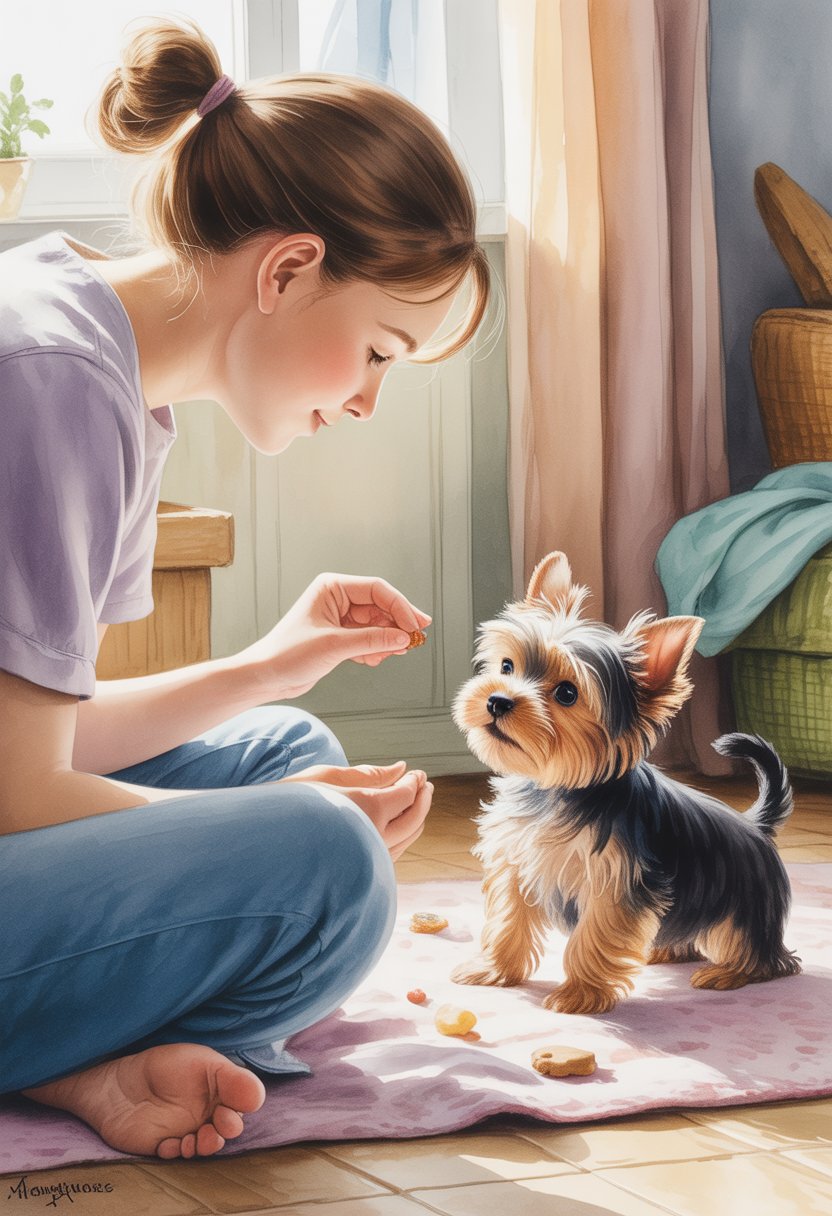
Yorkies may be tiny, but they often have strong personalities. Their small bodies mean they can tire quickly or feel overwhelmed if training gets too demanding.
Gentle handling helps them stay calm and engaged. Because they’re sensitive, they do best with steady routines.
Clear, repeated cues help them understand what’s expected without confusion. Skipping steps or changing rules too often just slows things down.
Accidents happen, especially with house training. Staying patient prevents stress for both you and your dog.
A calm approach encourages your Yorkie to keep trying. Consistency builds trust.
When training methods stay the same, your Yorkie feels secure and learns faster. Steady guidance helps shape good habits over time.
Owners should remember that small size doesn’t mean less effort in training. Yorkies need the same structure as bigger dogs, just with extra care and patience.
Understanding Yorkie Behavior
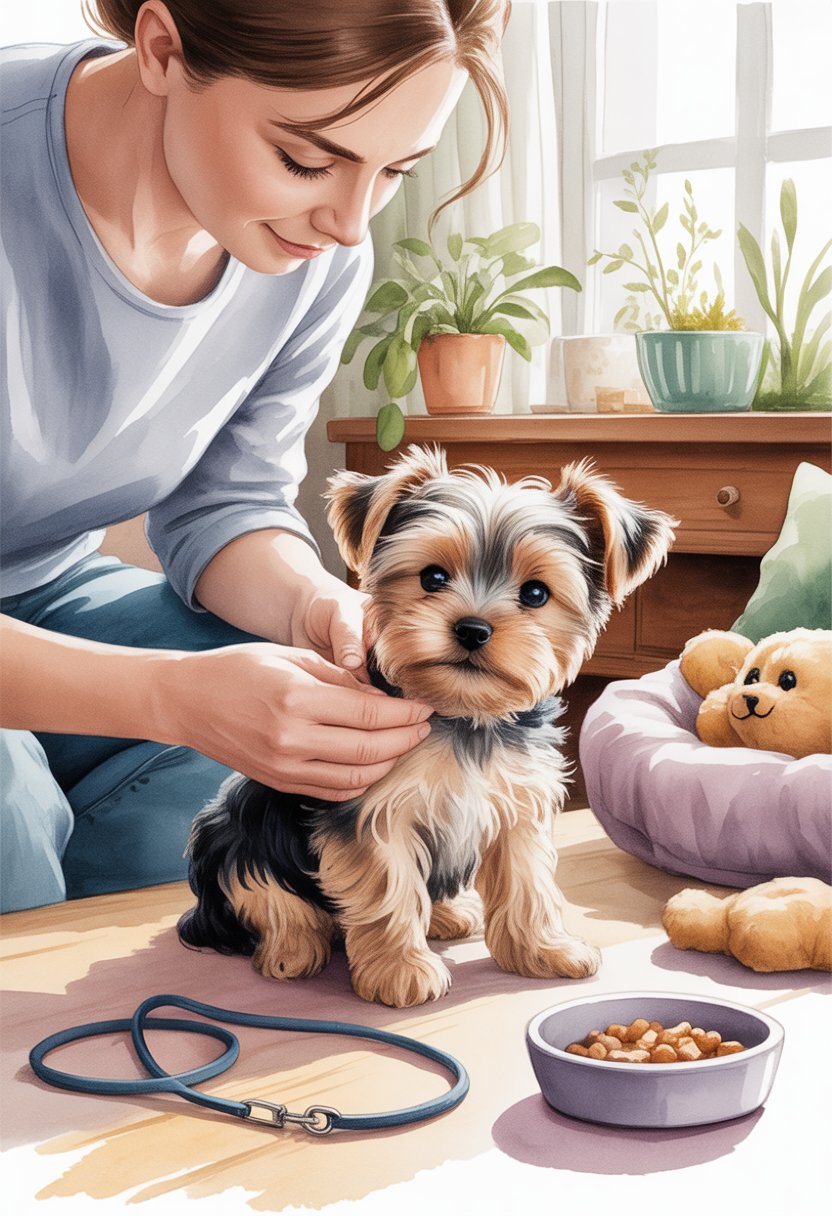
Yorkshire Terriers are small in size but have big personalities. They often show a mix of confidence, alertness, and affection, which shapes how they interact with people and respond to training.
Common Temperament Traits
Yorkies usually have a bold and curious nature. Despite their small build, they act fearless and may try to take charge at home.
This can make them seem stubborn, but it also shows their strong-willed personality. They form close bonds with their families and often want to stay near their favorite people.
Many Yorkies love being lap dogs, yet they also have bursts of high energy and playfulness. Because they’re alert, Yorkies tend to bark when they hear noises or see strangers.
This makes them good watchdogs, but it can get excessive if you don’t manage it early.
A few common traits include:
- Affectionate: They enjoy attention and companionship.
- Alert: Quick to notice changes in their surroundings.
- Independent: Sometimes resistant to following commands.
- Energetic: Need play and walks to release energy.
How Yorkies Respond to Training
Yorkies are smart little dogs, and they pick up commands pretty quickly. They seem to thrive with positive training methods.
Harsh discipline just makes them anxious or stubborn. Gentle praise and tiny treats go much further in getting them to cooperate.
Consistency really matters here. Short, regular sessions work better because their attention span isn’t very long.
Yorkies can be stubborn, so patience is essential. Owners need to repeat things and keep rules clear to avoid confusion.
Setting routines helps cut down on barking and nipping.
Socialization matters, too. When Yorkies meet new people, pets, and places early on, they’re less likely to be fearful adults.
Building Trust Through Positive Reinforcement
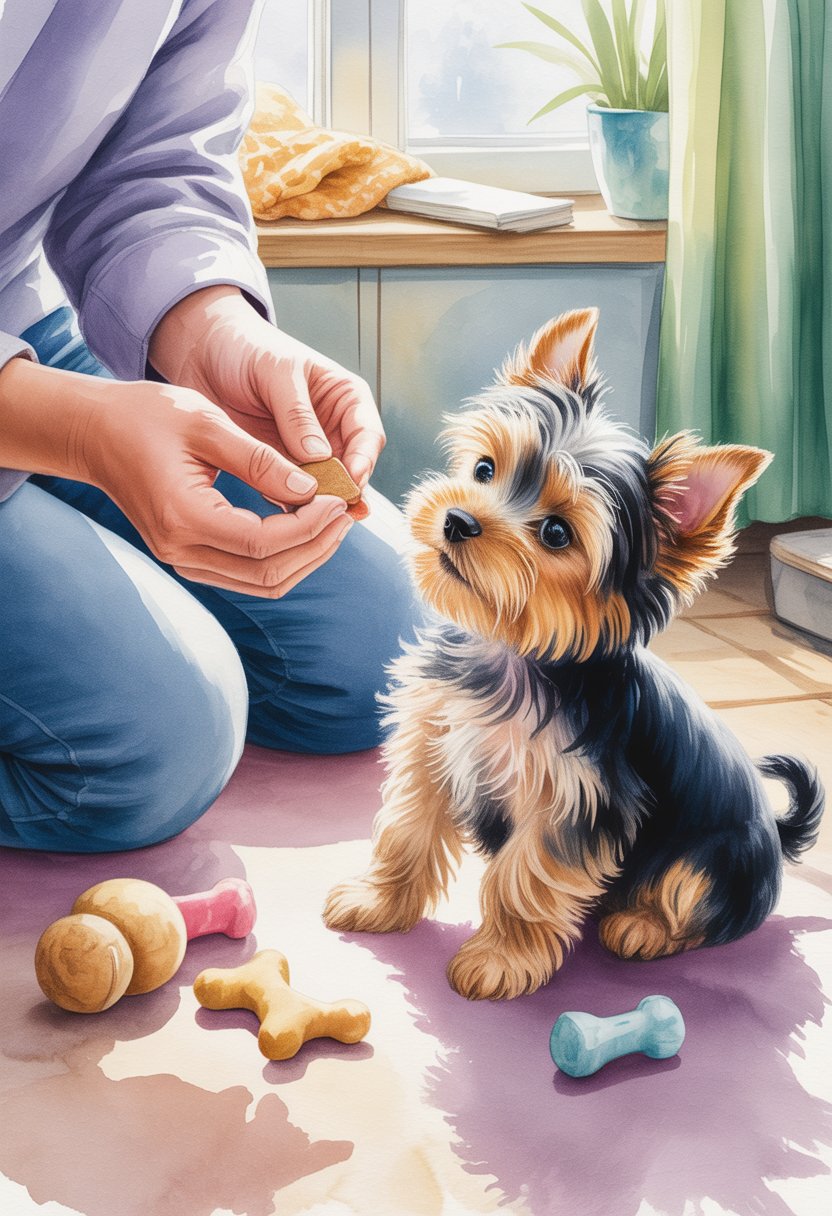
Yorkies do best when training feels safe and rewarding. Using treats and praise to encourage calm behavior keeps them confident and eager to learn.
Effective Reward Systems
Positive reinforcement only works if the reward actually motivates the dog. A lot of Yorkies love soft treats, but some get just as excited about praise or a favorite toy.
It’s a good idea to try different rewards and see what really lights them up.
Timing is huge. The reward needs to come right after the behavior so the Yorkie makes the connection.
For example, hand over a treat right after they sit on command. That way, they learn much faster.
Consistency builds trust, too. If you always reward the same behavior, your Yorkie will know what you want.
Keep sessions short—5 to 10 minutes is plenty. That way, they won’t get bored or frustrated.
Here’s a simple table to track what works:
| Behavior | Reward Type | Notes |
|---|---|---|
| Sitting calmly | Small treat | Responds quickly |
| Allowing gentle touch | Verbal praise | Tail wagging |
| Coming when called | Toy play | Very excited |
Avoiding Negative Reactions
Harsh corrections or punishment can damage trust and create fear. Yorkies are sensitive—sometimes just raising your voice makes them shut down or avoid training altogether.
Instead of scolding, try redirecting unwanted behavior. If your Yorkie nips during handling, hand them a chew toy as a clear alternative.
This approach turns a problem into a learning opportunity, not a scary moment.
Body language matters, too. Staying calm and relaxed tells your dog there’s no threat.
If you start getting frustrated, it’s honestly better to pause and try again later. Short, positive sessions usually get you farther than long, stressful ones.

